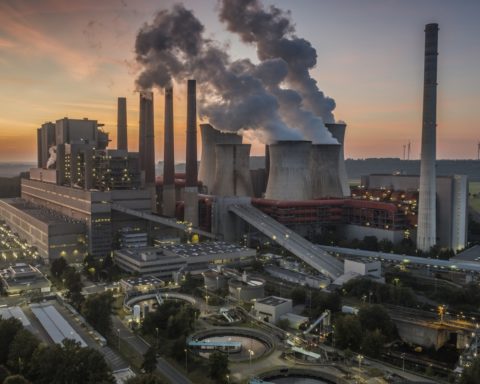Avertissement de la communauté scientifique ; émoi public ; engagement des pouvoirs publics à agir ; constat que rien n’a vraiment changé ; nouvel avertissement des scientifiques, etc. Comme un pas de danse bien rodé, le rituel se répète depuis 1979, date du premier avertissement scientifique, lors de la Conférence mondiale sur le climat. Jusqu’à quand ?
TRIBUNE LIBRE
Progressivement, le ballet se transforme en danse macabre, entraînant riches et pauvres dans la même ruine. La récente tribune « Face à la crise écologique la rébellion est nécessaire » signée par près de 1 000 scientifiques et présentée en Une du Monde du 21 février, souligne, après des dizaines d’avertissements du même tonneau, que « depuis des décennies, les gouvernements successifs ont été incapables de mettre en place des actions fortes et rapides pour faire face à la crise climatique ». Elle en appelle à une action des citoyens eux-mêmes.
On découvrira demain, bien sûr, que ces actions sont tout aussi impuissantes à engager la transformation structurelle indispensable.
Les scientifiques se prennent à espérer que les propositions issues de la Convention citoyenne pour le climat, dont la sixième session (sur sept) s’est terminée le 8 mars, seront enfin à la hauteur du défi. C’est beaucoup d’illusions si l’on regarde le mandat donné à la Convention, qui invite les citoyens à lister des actions classées dans cinq domaines (se loger, se déplacer, travailler et produire, se nourrir, consommer), le faible temps laissé à des citoyens qui, pour la plupart, ne peuvent consacrer que leurs week-ends à la réflexion sur un sujet aussi vaste et la méthodologie de travail qui les met dans une moulinette qu’ils n’ont pas choisie.
Politique et économie, les deux lorgnettes que l’on regarde par le mauvais bout
Les mêmes causes produiront les mêmes effets. On découvrira dans deux ou trois ans que les mesures adoptées étaient malheureusement « anecdotiques », pour reprendre les critiques portées par certaines ONG à l’encontre du président de la République après sa visite le 13 février au massif du Mont-Blanc. Que dirait-on d’un Dans une affaire qui concerne notre avenir à tous, on continue, on prend les mêmes et on recommence.médecin qui recommanderait pendant plusieurs décennies le même traitement sans résultat ? On envisagerait de changer l’un et l’autre.
Mais non, dans une affaire qui concerne notre avenir à tous, on continue, on prend les mêmes et on recommence.
Encore un tour de valse : avertissement, émoi, mesures nouvelles, constat que rien n’a changé. Seuls les musiciens semblent infatigables.
Où est le loup ? Il est bien visible, pas besoin d’aller le chercher dans les bois. La démarche est toujours identique. On montre par des scénarios techniques qu’il serait possible de réduire notre empreinte carbone totale, incluant l’énergie grise (celle qui a servi à fabriquer et transporter les biens et services importés). Puis on met en place des obligations de moyens pour faire advenir ces scénarios, tout en veillant à ne pas mettre en péril notre industrie, notre croissance, notre niveau de vie. Et, bien entendu, si ces moyens n’ont pas obtenu le résultat escompté, personne n’en est responsable.
Si ces moyens n’ont pas obtenu le résultat escompté, personne n’en est responsable.Politique et économie sont ainsi deux lorgnettes que l’on regarderait par le mauvais bout. Au lieu de nous faire voir l’avenir de près, elles nous en éloignent, le renvoient dans l’abstraction : au-delà des échéances électorales pour la politique, au-delà des prévisions de rentabilité pour l’économie. Entre des mesures efficaces contre le réchauffement climatique, dont l’effet ne se fera sentir qu’à long terme et à l’échelle mondiale, et la réduction du chômage, qu’est-ce qui a des chances de déterminer les futures élections ? Poser la question, c’est y répondre. Une question qui mérite un référendum.Conclusion
Il est inévitable, pour sortir de la danse macabre, de changer radicalement d’approche, en remplaçant les foisonnantes obligations de moyens par une obligation de résultat et en instaurant une responsabilité juridique des gouvernants à l’égard de cette obligation. Obligation de résultat : le plafond de notre empreinte carbone totale, incluant les émissions directes et indirectes, doit se réduire de six à sept pour cent par an. Ce qui veut dire que c’est un bien rare, et même de plus en plus rare.
Comment peut-on répartir équitablement un bien rare au sein d’une population ? Il n’y a pas trente-six solutions, il n’y en a que trois : agir sur le prix du bien, par la taxation, jusqu’à ce que la totalité de la demande n’excède pas le plafond ; mettre le bien aux enchères ; répartir équitablement ce bien entre toute la population.
Les deux premières solutions reviennent à réserver aux plus riches un bien, la consommation d’énergie fossile, dont chacun est dépendant. Autant dire qu’elles ne sont pas politiquement praticables.
Reste la troisième : l’allocation à chacun de quotas d’émission. Responsabilité des dirigeants à l’égard du respect de nos engagements internationaux et allocation de quotas d’émission à tous, voilà bien la matière d’un référendum. La Convention citoyenne sera-t-elle en mesure de le proposer ? À voir la moulinette dans laquelle sont pris les citoyens membres de la Convention on peut en douter. Reste à espérer un sursaut.
- LIRE DANS UP’ : Faut-il des quotas de ressources par citoyen ?

Pierre Calame est l’auteur de « Petit traité d’oeconomie » Editions Charles Leopold Mayer, 2018.
Photo d’entête : ©Maison de la danse Lyon/Romain Etienne












